|
C
L I M A T E C H A N G E
Please
use our A-Z INDEX
to navigate this site, or HOME
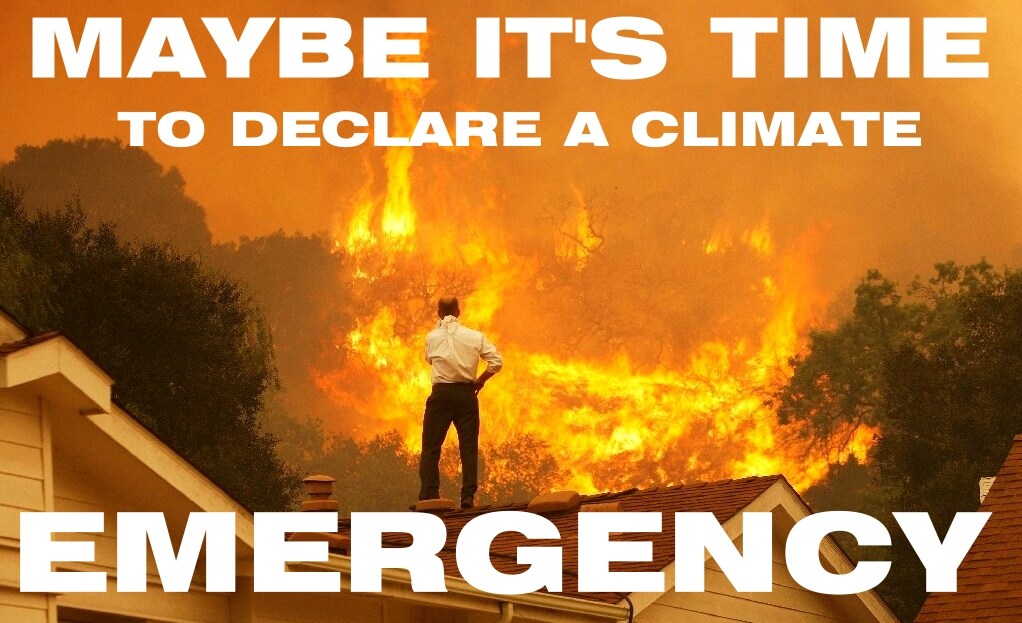
We
are turning our farmland into deserts all over the world. The
ice caps are melting raising sea levels and we are annihilating
species by the bucket load. All of this means that world
politics has failed the planet
at the expense of the powerful kleptocratic
corporations
that control many puppet politicians.
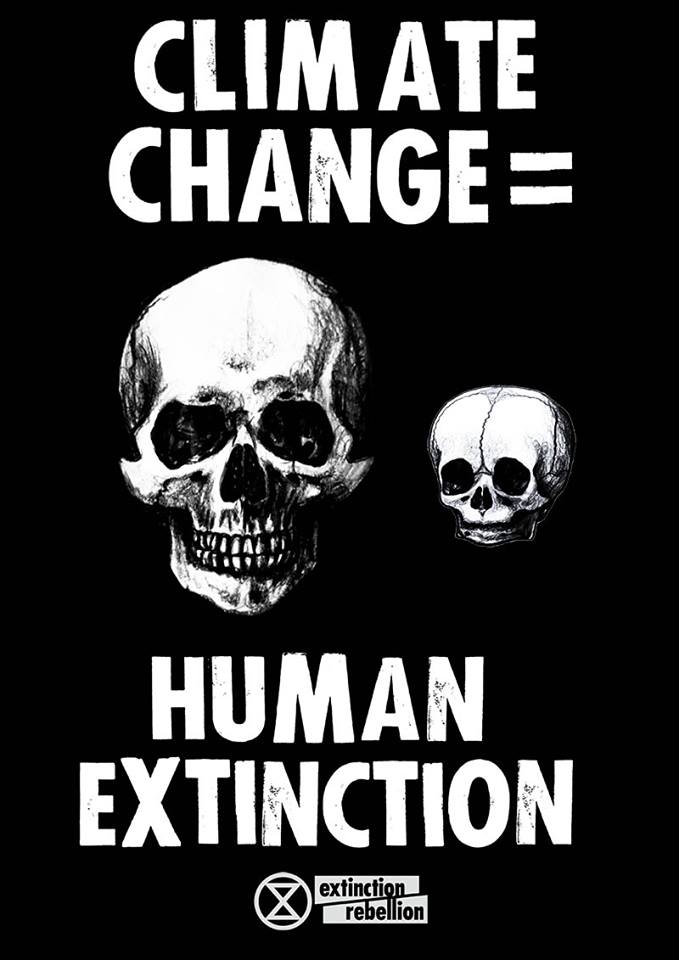
SIX
STEPS TOWARD A COOLER PLANET
1.
TRANSPORT:
Phase out polluting
vehicles. Governments aims to end the sale of new petrol, and
diesel vehicles by
2040 but have no infrastructure plan to support such
ambition. Marine transport can be carbon neutral.
2.
RENEWABLES:
Renewable energy should replace carbon-based fuels (coal, oil and gas) in our electricity, heating and transport.
3.
HOUSING: On site micro or macro
generation is the best option, starting with new build homes.
4.
AGRICULTURE: We need trees to absorb
carbon emissions from a growing population, flying, and to build new homes. Reducing food waste and promoting
less energy intensive eating habits such as no meat Mondays.
5.
INDUSTRY: Factories should be aiming for solar heating and
onsite renewable energy generation.
6.
POLITICS: - National governing bodies need to adopt
rules to eliminate administrative wastages, to include scaling
down spending on war machines, educating the public and supporting sustainable
social policies that mesh with other cultures.
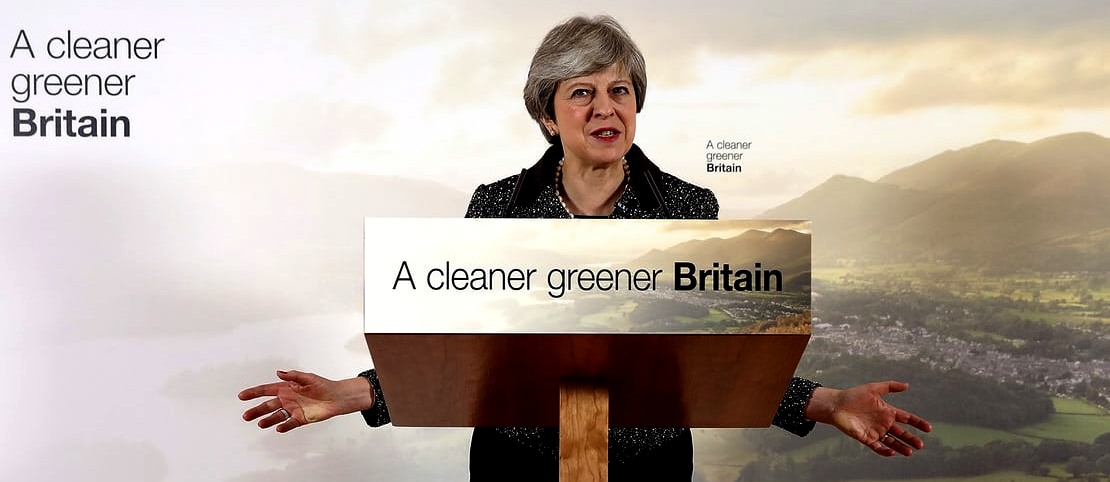
THERESA
MAY - has said her government is serious about improving the environment after pressure groups gave a lukewarm response to a 25-year green plan, praising its ambition but warning that it lacked sufficient proposals for immediate action.
No kidding. We need direct action not words. Show us the money
Theresa? We are not the only ones frustrated at the frog
like apathy. Greta
Thunberg is one of the future generation also angry at
their elders throwing away their hopes and dreams - as if it was theirs
to squander. As Prime Minister, Mrs May increased the targets
by amending the climate
change act, before the virtually un-winnable Brexit
situation forced her to leave office.
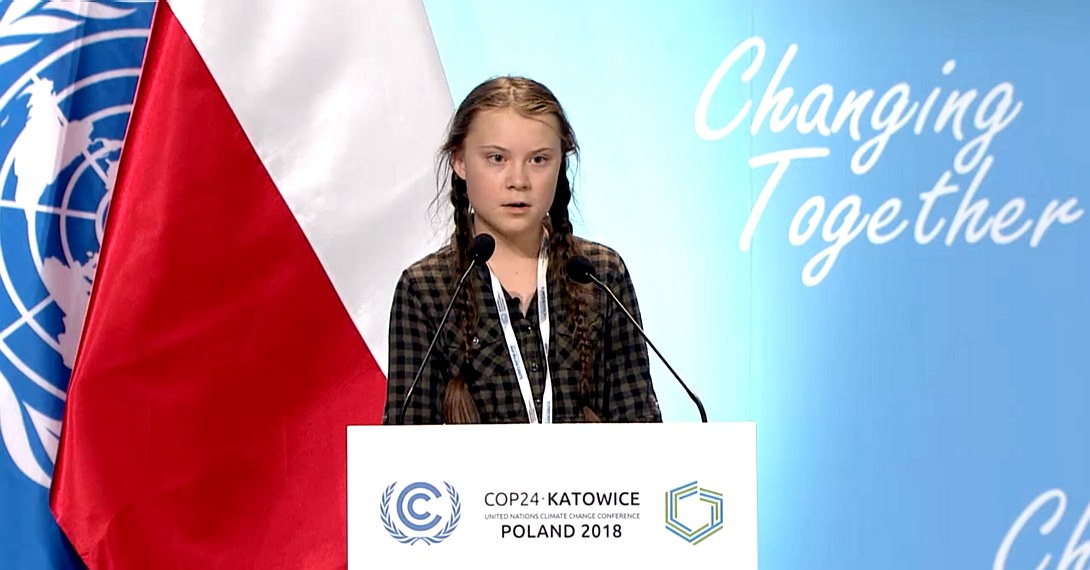
CLIMATE
ACTIVIST - Greta Thunberg is a 15 year old
schoolgirl who knows more
about climate change than
most of the United
Nations delegates put together. That may not be not quite true,
but she knows that we have to act now and stop talking about acting.
Hence, she knows more in practical terms. Because Greta has no
investments in fossil fuels she can see clearly. Once finance and
investments comes into play - as with most politicians - they develop
climate myopia (Climopia). This is a disease that lodges in the brain
and makes the eyes see what the bankers and industrialists want them to
see. It is a sort of Pied Piper effect with money luring otherwise sane
people to do nothing to upset the gravy train. Climopia prevents politicians from acting to save future
generations, where all they can think about is their wallets and the
bank accounts of existing stakeholders, ignoring the future of their
children. Miss Thunberg wants the media to tell it straight and tell if
more often so as to help politicians with Climopia think and see
clearly. Two politicians with serious advanced Climopia are Donald
Trump and Vladimir
Putin. The diagnosis for this pair of dinosaurs is Criminal
Climopia, otherwise known as insanity. Apparently, the richer you are the more myopic your
outlook. A proximity to oil
wells and beef-burgers also has an effect - both of course major
contributors to global
warming. Beef carries a risk of Mad Cow
Disease, that may have a link to Climopic Insanity. Greta is a star Climate
Changer.
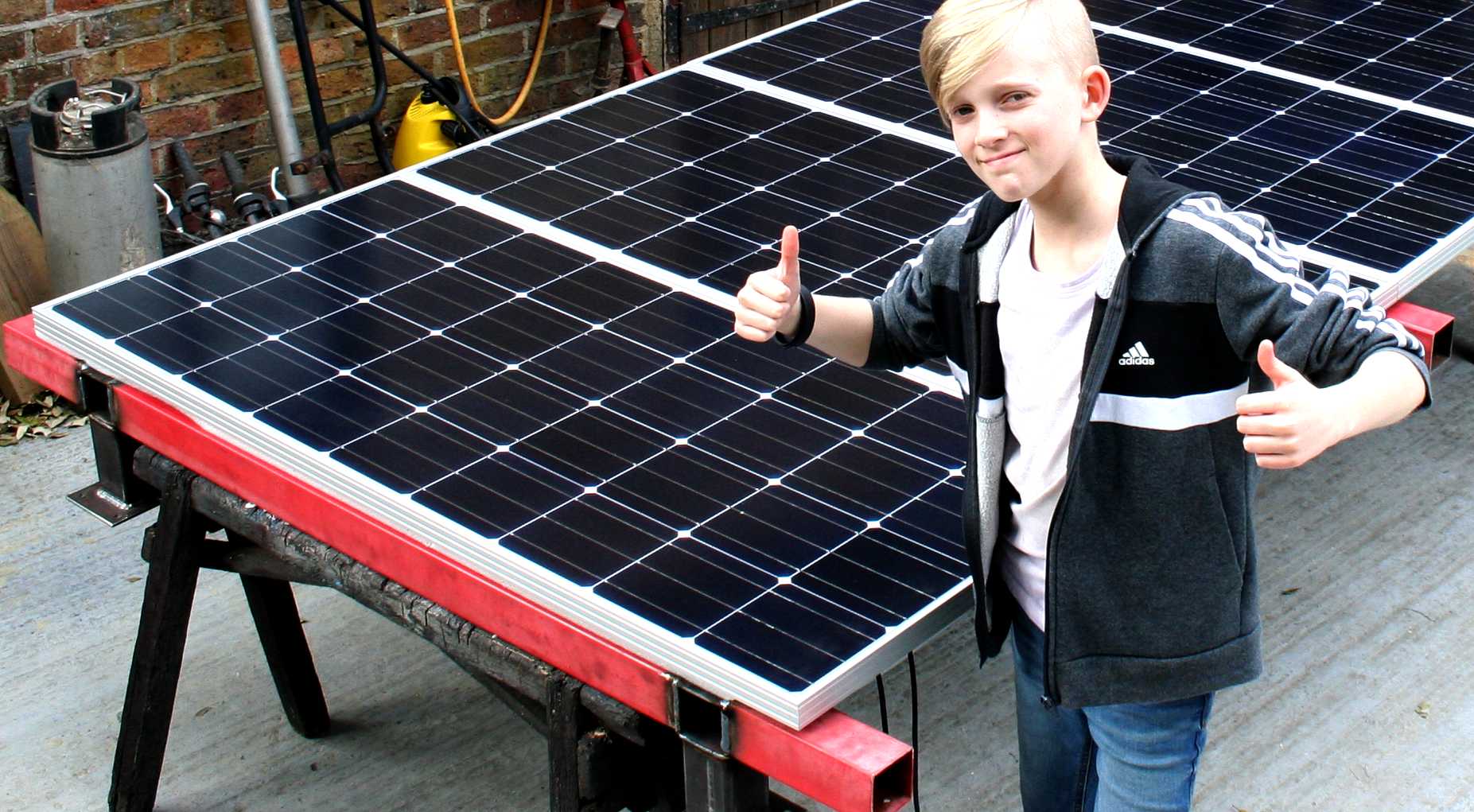
SOLAR
POWERED - Doing our bit to combat climate change, we
are building an experimental rig aiming to put a larger
version of the same concept on a coastal
version of SeaVax from 2020 (subject to funding). The rig
above is to be fitted to a Ford Transit
roof in May of 2019 so that the experiment can be moved to
other weather locations. This is another step in the direction
of zero carbon shipping. Our experimental rig will
track the sun and move arrays on either side of these fixed
panels to increase the harvestable light energy. Copyright photograph ©
22-04-19 Cleaner
Ocean Foundation Ltd, all rights
reserved.
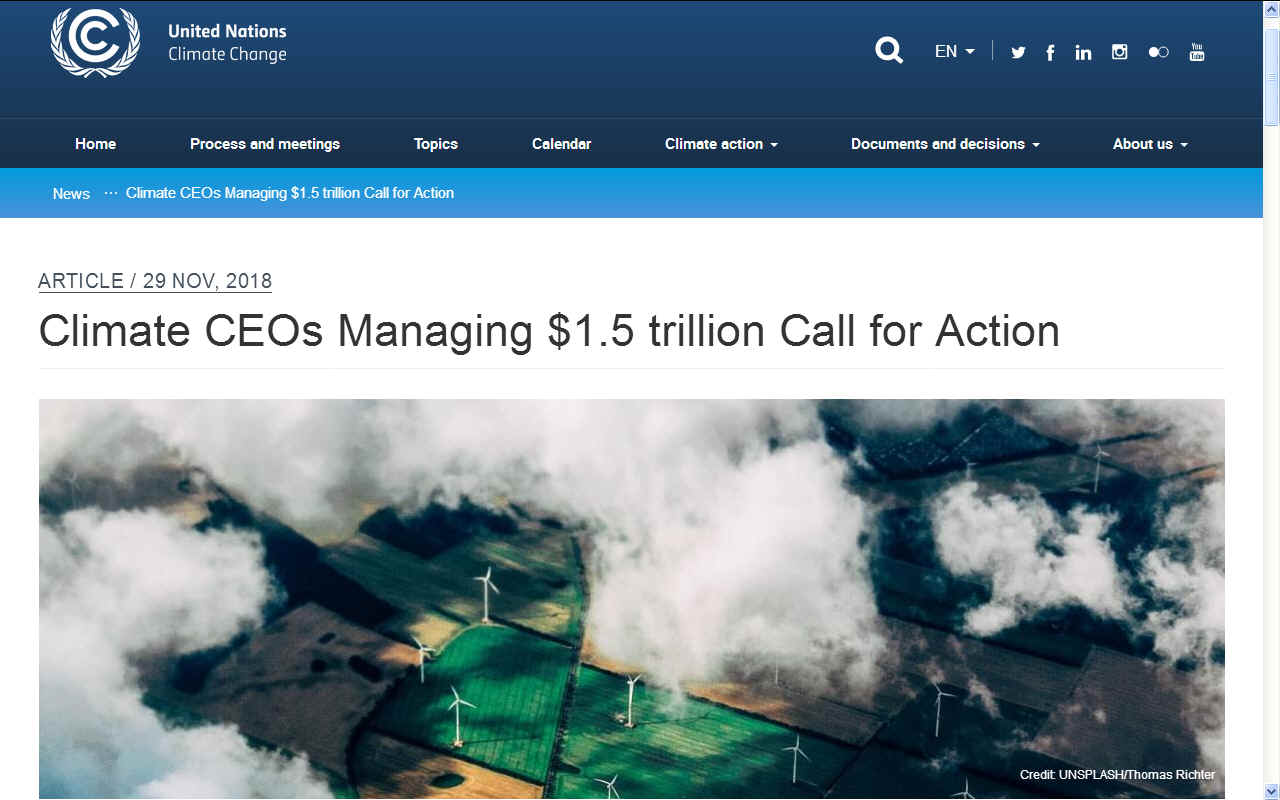
UNITED
NATIONS PRESS RELEASE 29/11/2018
UN Climate Change News, 29 November 2018 - Heads of 50 major global businesses representing more than $1.5 trillion in total revenue today publish an open letter to world government leaders urging greater collaboration to accelerate outcomes in the race against climate change.
The business leaders call to action comes as government leaders prepare for the UN
Climate Change Conference COP24 (2-14 December) in Katowice, Poland, where countries are set to finalize the Paris Agreement implementation guidelines to limit the global average rise in temperature to well below 2 degrees Celsius and as close as possible to 1.5 degrees Celsius.
“If we have twelve years to avoid a ‘hothouse’ earth, we absolutely cannot pursue a business-as-usual approach. Business and government must forge new partnerships that are able to drive results much more quickly than our current international architecture allows,” said Dominic Waughray, Head of the Centre for Global Public Goods, Member of the Managing Board,
World Economic
Forum.
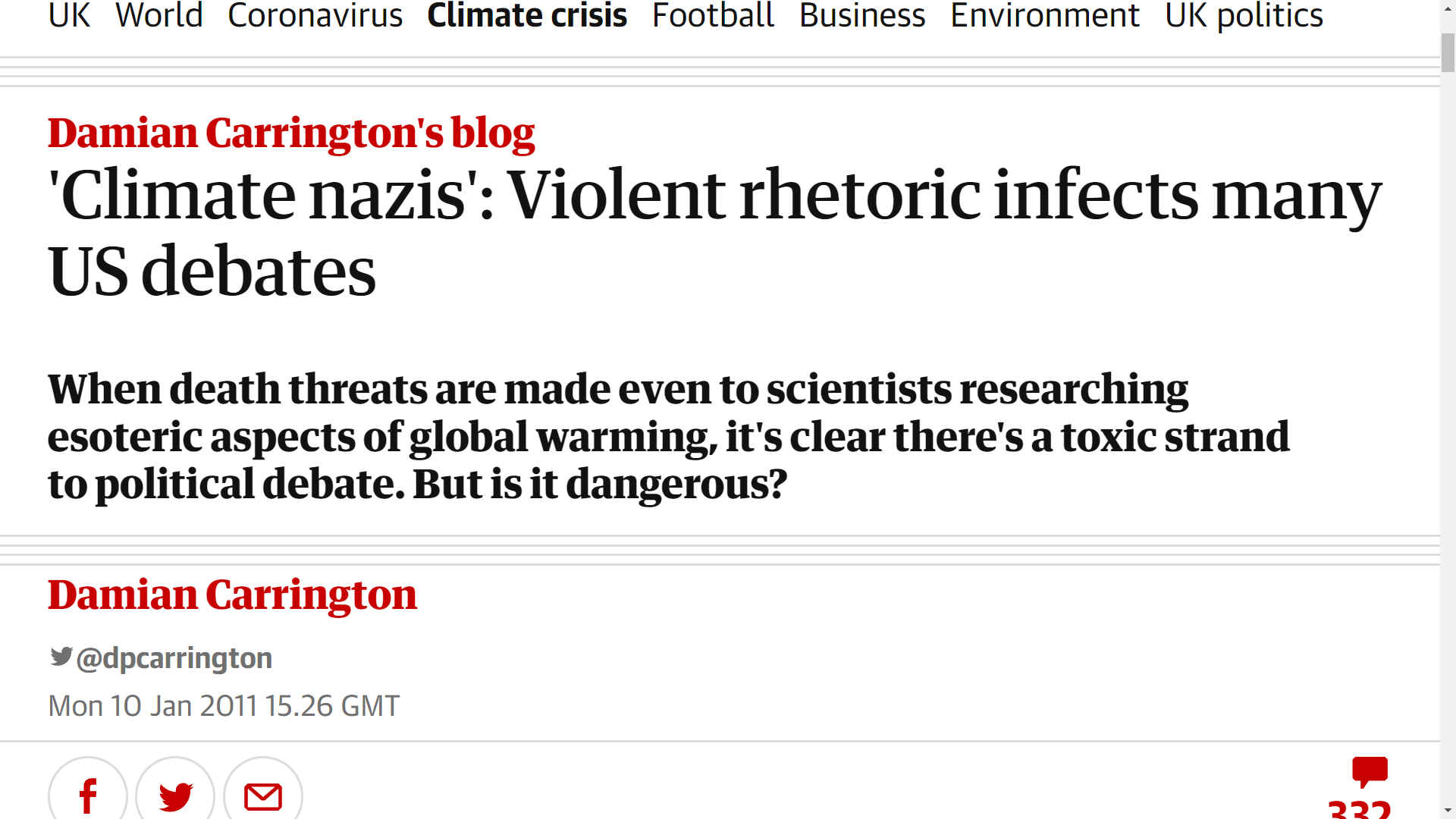
With
so much money at stake, it is going to get ugly. The powerful
fossil fuel corporations appear to have bought the services of
many politicians, in a desperate bid to keep making money from
dangerous fuels such as coal
and oil. According to an article in the Guardian
in 2011, scientists have been threatened if they continue
to tell the truth.
The Alliance of Climate CEOs has also provided input into the UNFCCC Talanoa Dialogue and companies will be looking for a clear signal from COP24 negotiations that governments are willing to strengthen their engagement with the private sector. When they meet in Davos in January 2019, a clear focus will be on setting goals for the UN Secretary General’s Climate Summit in September 2019 to further support the urgent action needed – a watershed moment for getting the planet on track to curb emissions and avoid global temperature rise beyond 1.5oC.
Leaders from the Forum’s Alliance of Climate Action CEOs are committed to using their positions to help meet the Paris Climate Agreement goals. Thirty of the companies that signed the open letter succeeded in reducing emissions by 9%, (more than 47 million metric tonnes in absolute terms) between 2015 and 2016, the equivalent of taking ten million cars off the road for one year.
Alliance leaders call for greater public-private cooperation to accelerate effective carbon pricing mechanisms and policies to incentivize low-carbon investment and drive demand for carbon-reduction solutions. They also highlight the business case for cutting emissions to generate wider support in the private sector.
“Business has an increasingly vital role to play in accelerating the shift to a low-carbon and climate-resilient economy. This will require partnerships with other companies, governments at all levels and civil society. It also requires bold leadership and good governance, which will allow long-term creation of shareholder value alongside long-term value for our society. We, as business leaders, are committed to climate action and stand ready to facilitate fast-track solutions to help world leaders deliver on an enhanced and more ambitious action plan to tackle
climate change and meet the goals set out at the 2015 Paris Climate Agreement”, said Feike Sijbesma, Chief Executive Officer and Chairman of the Managing Board, Royal DSM, and Chair of the Alliance of CEO Climate Leaders.
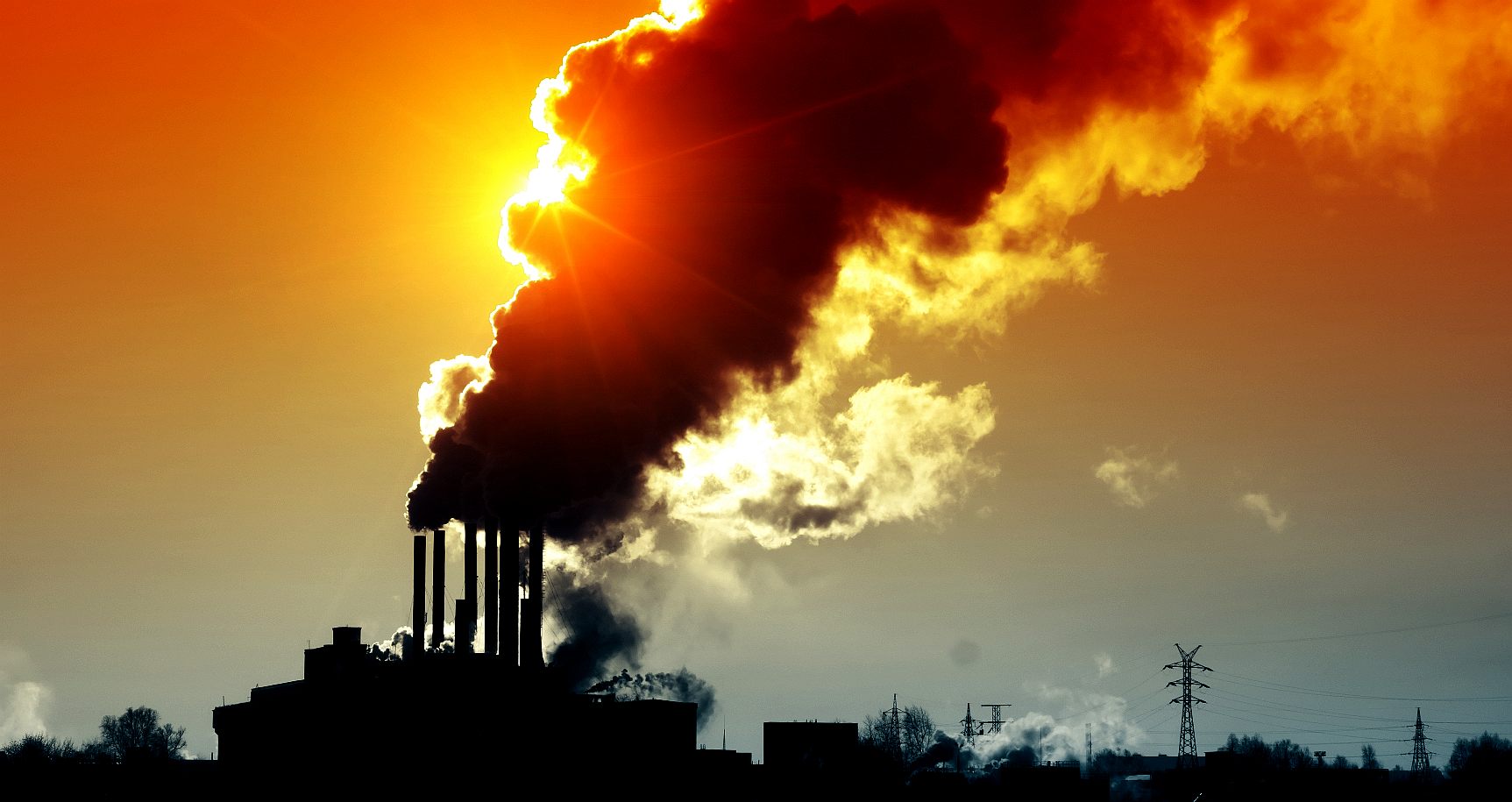
Among measures taken by members of the Alliance to drive climate action within their businesses:
· BT: The UK-based telecom provider is aiming to buy 100% renewable
energy by 2020, and to have reduced carbon intensity by 87% from 2017 levels by 2030. It is also aiming to help customers cut emissions by three times its own total carbon impact by 2030.
· ENGIE: Having cut coal-fired capacity by 60% since 2016 by closing or selling plants, the
France-based energy group has adopted an internal carbon price and is now focusing on low
CO2e energy sources like natural gas and renewables, which will represent over 90% of its earnings by 2018.
· ING Group: By 2025, the banking group will only finance existing utility clients that use coal for 5% or less of their energy mix. New clients will only be financed if they have near-zero reliance on coal. As of November 2017, 60% of all utilities project financing went towards renewables.
· Ørsted: Changed its name in 2017 from Danish Oil and Natural Gas (DONG) Energy to signify its switch from oil and gas to renewable energy. The company has committed to reducing greenhouse gas (GHG) emission intensity from energy production by 96% by 2023, using a 2006 base-year.
· Royal DSM: The Netherlands-based global business in health, nutrition and sustainable living was established in 1902 as a nationalized
coal mining company. This year it has committed to an absolute GHG emissions reduction of 30% (2016-2030, Scope 1+2), among other by using 75% purchased renewable electricity by 2030. DSM uses an internal carbon price of €50 per ton of CO2e.
· Signify: Formerly Philips Lighting, the company has committed to achieve net-zero carbon buildings by 2030 and to operate a 100% electric and hybrid lease fleet by 2030.
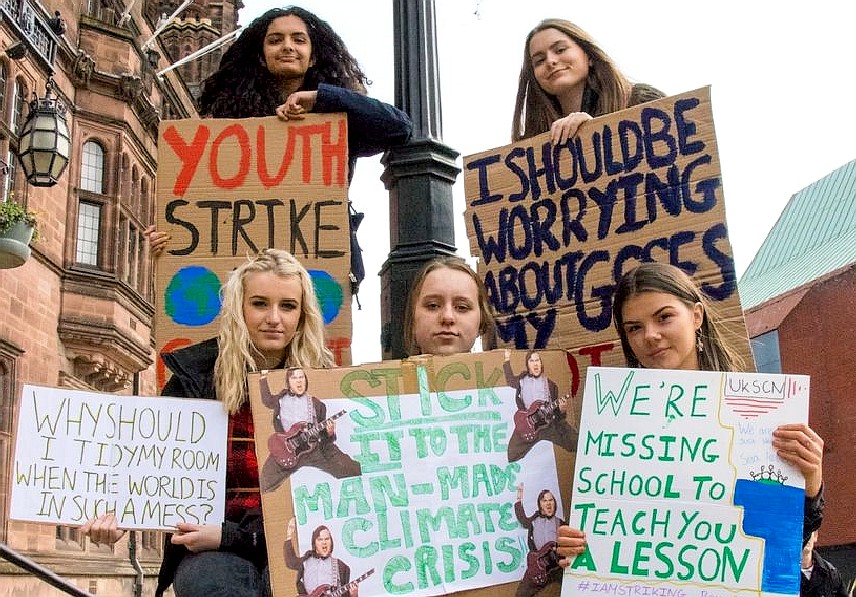
COVENTRY
TELEGRAPH MARCH 15 2019 - Millie Hilditch-Gray is 16 from Finham Park School (year 11).
She explains why she wanted to be a part of the global movement and strike from school to protest climate change.
I have my GCSEs in less than two months yet I have been forced into striking against the current climate crisis that faces the world out of pure necessity and urgency.
We need personal, local, national and global change to take place: Right Now.
You may be wondering why I’m going on about a ‘climate crisis’ - well I am here to tell you all about it.
I took part in the Coventry Youth Strike for Climate Change on March 15 - one of many strikes happening across the world.
I am part of a group called UK Student Climate Network (UKSCN). Our main aim is to get the UK government to not just make promises but to take definitive steps to lower UK carbon emissions and accept that we are in a climate emergency.
We need schools to teach the current climate crisis more in lessons; students should understand the danger we all face if we stay blind to the problems climate change will bring.
At the strike, the turnout ranged from young primary school children and teenagers to adults who came down in solidarity of the youth movement.
I spoke to some of these people and the overwhelming general message was the need to have their voices heard, the urge to say something, and the passion to fight for what they believed in - getting governments to show actual action in battling climate change .
Chants resonated down the street outside the council building - “Hey, Ho Fossil fuels have got to go” - as I interviewed a range of people to get their views on climate change.
The adults at the strike wanted to know exactly how they could help with getting our voices heard.
When I asked why one man was so passionate about protesting climate change he replied: “Well we are doomed if we don’t,
the world is in a big, big mess.”
I have been asked by many people as to why I am striking. Why I believe this is more important than a day of school. Well in answer to this, I believe that I have learnt more from talking to people about climate change at the strike than I would in a year of textbooks and essays.
I have benefited from this in a way of learning that no school lessons could ever teach me: I became aware of the world I live in, the danger we face, and how I should use my privilege to stop the injustices that face our world. I learnt vital lessons in public speaking, maturity, and most of all the value of my local community.
In an email to my head teacher explaining why I would be striking against the current climate crisis, I wrote: "I am going to be striking tomorrow, I fully will accept the repercussions of my own actions however i definitively stand by these actions and my heart, I remember you saying that strikes don’t bring change in our meeting.
Around the world, we are already seeing devastating and destructive natural disasters that are threatening the very existence of people and animals across the world. Scientists have presented us with just 12 years to reduce carbon emissions, before the effects of climate change become too great to reverse.
To combat this huge risk to my future I urge all people to take action in your own lives, to support this youth movement, to get those in power to reduce carbon emissions, and to get my voice heard.
At my school, I will be working with our head teacher and fellow students to set up a dedicated eco committee to tackle climate issues in our school; these will include getting recycling bins, and having assemblies about climate change to teach students about what they can do to help.
This movement needs to go down in the history books, we want students to taught about this movement in the future, but most of all I want to have a future.
The next Youth Strikes For Climate Change will take place on April 12.
The sea levels are rising, but the youth are rising faster. Find out more about the movement at
https://ukscn.org/

EXTINCTION
OF SPECIES - From blue planet to scorched earth because
vested interests prevented politicians from putting the brakes
on.
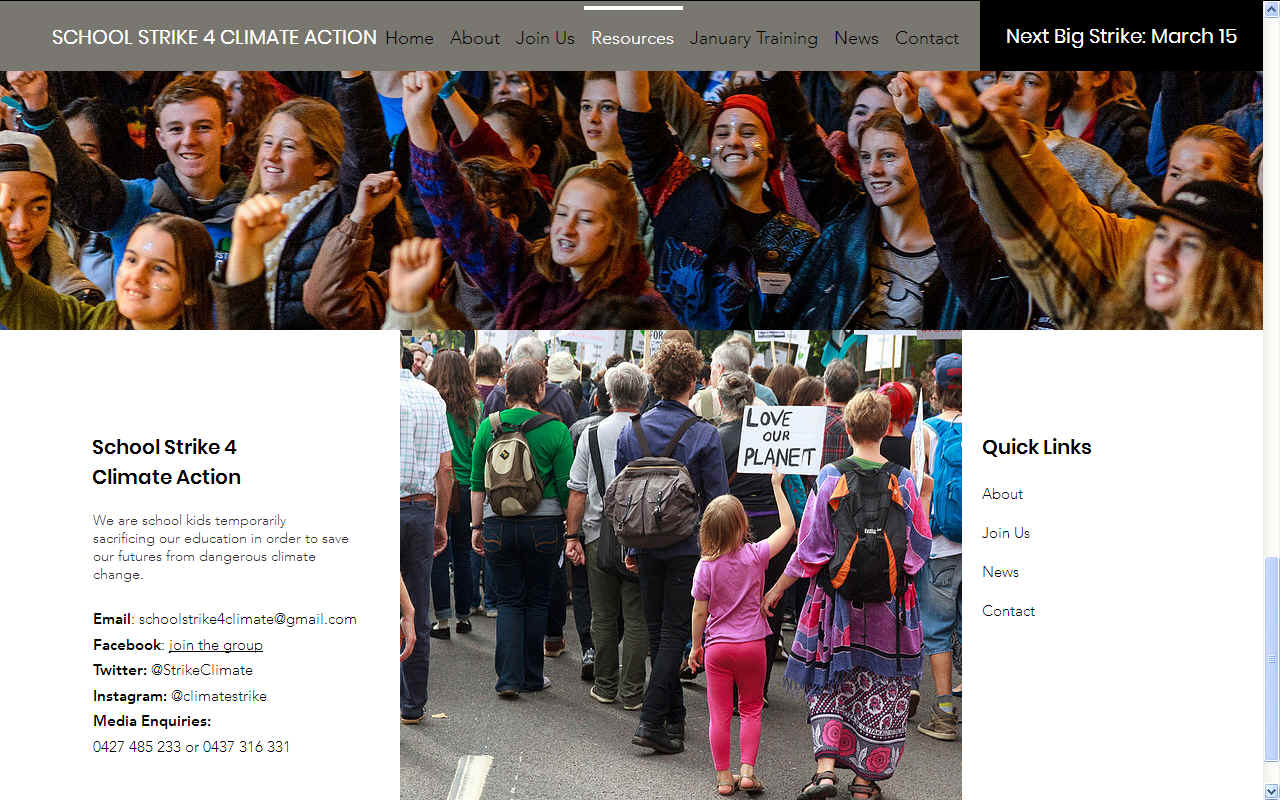
MARCH
2019 CALL TO ARMS - They are school kids temporarily
sacrificing their education in order to save our futures from
dangerous climate
change. What stars. On November 30, over 15,000 boys and
girls went on strike from school
in every capital city and over 20 regional centres across Australia. On
March 15, they are going even bigger and inviting adults to
join them in solidarity for a Global Climate Strike. We're in!
View from the C-Suite
José Manuel Entrecanales Domecq, Chairman and Chief Executive Officer, Acciona: “The second-best time to act against
climate change is now; the best has already passed. It´s the moment to foster emission reduction, effective carbon prices, key partnership and climate risk management.”
Cees 't Hart, President and Chief Executive Officer, Carlsber: “We’re targeting carbon neutrality by 2030 and are excited to work alongside like-minded businesses in our drive to reach the goals of the Paris Agreement, through climate leadership and action.”
John Flint, Chief Executive Officer, HSBC Holdings: “Climate change is a major threat to our environment, societies and economy. Decarbonization of the economy is not straightforward, but it can be achieved by urgent and combined efforts by government, business and policy-makers. HSBC is committed to climate action and has already made significant progress towards our commitment to provide $100 billion of sustainable finance”.
Chen Kangping, Chief Executive Officer, JinkoSolar: “This is the last chance we give to ourselves. Don’t be too late to take action when grid parity is just around the corner.”
Bernard J. Tyson, Chairman and Chief Executive Officer, Kaiser Permanente: "We have a real opportunity to create synergistic public-private partnerships. Working together, we can solve these pressing climate change issues."
Tex Gunning, Chief Executive Officer, LeasePlan: “Climate change is one of the biggest challenges facing every one of us. That’s why we’re committed to working with the entire stakeholder community to speed up the transition to zero emission mobility. Our ambition is to achieve net zero emissions from our entire fleet of 1.8 million vehicles by 2030.”
“Pollution is having dramatic impact on our climate, our landscapes, our flora and fauna, and our health. We need a higher environmental engagement and a shift towards systems that address the negative and positive externalities of products and businesses. Banks should stop financing dirty businesses and shift financial flows towards a low carbon and more circular economy,” said H.S.H. Prince Max von und zu Liechtenstein, Chief Executive Officer, LGT.
Henrik Poulsen, Chief Executive Officer, Ørsted: ”Green energy is now fully competitive with fossil energy. There is no economic reason for not accelerating the transition to green energy.”
Eric Rondolat, Chief Executive Officer, Signify: “Today’s weather anomalies are the result of a temperature rise of only 1 degree Celsius. Imagine the impact on our daily lives when temperature rises 2 degrees or more. We - both political and business leaders - need to act now and accelerate targeted integrated policy interventions that stimulate sustainable business and safeguard a healthy planet for future generations. The good news is that we can still limit global warming with the latest available technologies, so let’s step up climate action now for the benefit of all”.
Christian Mumenthaler, Group Chief Executive Officer, Swiss Reinsurance Company Ltd.: "Climate change is impacting our societies and will cause irreversible damage if we don't act. With our partners we need to make societies more resilient and build a low-carbon future".
J. Erik Fyrwald, Chief Executive Officer and Executive Director of Syngenta International: “Climate change poses severe threats to
food
security, rural communities and economies. As one of the world’s leading agricultural companies we are investing more than US$1 billion every year to achieve a coherent approach to meet that challenge.”
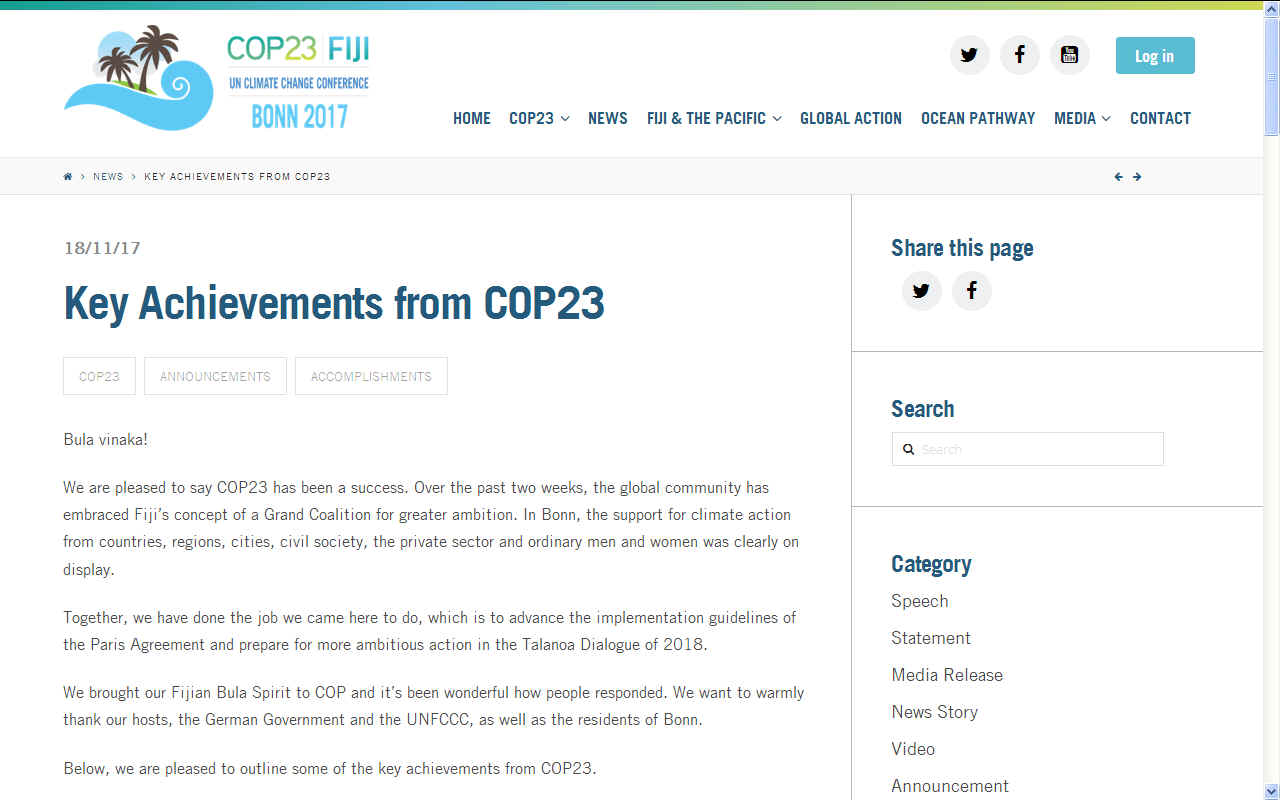
HOW
MUCH IS THE EARTH HEATING UP - As of early 2017, the Earth
had warmed by roughly 2 degrees Fahrenheit (more than 1 degree
Celsius) since 1880, when records began at a global scale. The
number may sound low, but as an average over the surface of an
entire planet, it is actually high, which explains why much of
the world’s land ice is starting to melt and the oceans are
rising at an accelerating pace. If greenhouse gas emissions
continue unchecked, scientists say, the global warming could
ultimately exceed 8 degrees Fahrenheit, which would undermine
the planet’s capacity to support a large human population.
According to a 2013 report, temperatures in
the shallowest waters of our oceans rose by more than 0.1 degree Celsius (0.18 degree Fahrenheit) each decade between 1970 and 2010.
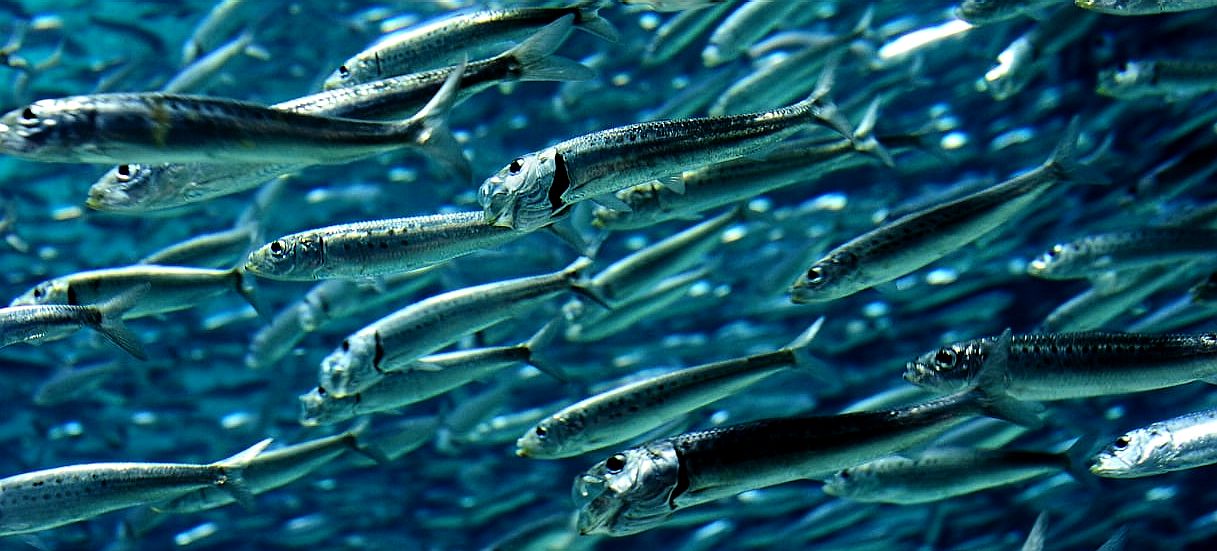
CLIMATE
CHANGE MIGRATION - Fish are moving to colder waters to
keep within their preferred temperature parameters. Cod and
sardines are moving north as the oceans warm.
These
are just six ways that warmer temperatures are affecting our
oceans:-
1. Coral bleaching
As early as 1990, coral reef expert Tom Goreau and I pointed out that mass coral bleaching events observed during the 1980’s were probably due to anomalously warm temperatures related to
climate
change.
Mass coral bleaching results in the starvation, shrinkage and death of the corals that support the thousands of species that live on
coral reefs.
2. Fish migration
In addition, many fish species have moved toward the poles in response to ocean warming, disrupting fisheries around the world.
3.
Fish shrinkage
A new study (21-8-17) by researchers at the University of British Columbia explains that fish are cold blooded and cannot regulate their own body temperatures. Thus,
when their waters get warmer, their metabolism accelerates and more
oxygen is needed to sustain body functions.
For this reason fish could shrink in size by 20 to 30 per cent if ocean temperatures rise by just 2°C (3.6°F) -
about what is expected to occur around the world by the mid-21st century.
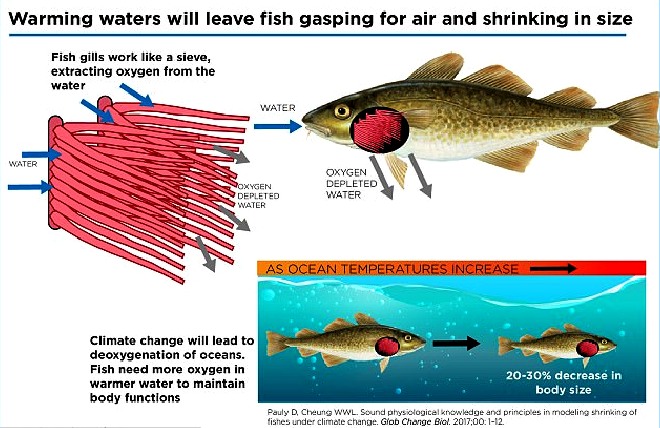
GILL
OXYGEN LIMITATION THEORY - There is a point where the gills
of a fish cannot supply enough oxygen for a larger body, so the fish just stops growing larger.
This is very similar to insects where oxygen supply is by
spiracles rather than lungs, also limiting growth size. The surface area of the gills – where oxygen is obtained – doesn't grow at the same pace as the rest of the body. Dr Daniel Pauly (lead author of the study) calls this principle the 'gill-oxygen limitation theory.'
As
of early 2017, the Earth had warmed by roughly 2 degrees
Fahrenheit (more than 1 degree Celsius) since 1880, when
records began at a global scale. The number may sound low, but
as an average over the surface of an entire planet, it is
actually high, which explains why much of the world’s land
ice is starting to melt and the oceans are rising at an
accelerating pace. If greenhouse gas emissions continue
unchecked, scientists say, the global warming could ultimately
exceed 8 degrees Fahrenheit, which would undermine the
planet’s capacity to support a large human population.
4. Drowning wetlands
Rising sea levels, partly the result of heat absorbed by the ocean, is also “drowning” wetlands. Wetlands normally grow vertically fast enough to keep up with sea level rise, but
recently the sea has been rising too fast for wetlands to keep their blades above
water.
Coral reefs and sea grass meadows are also in danger of “drowning” since they can only photosynthesize in relatively shallow water.

5. Ocean acidification
The ocean has absorbed about 30 percent of the carbon dioxide humans have sent into the atmosphere since the start of the Industrial Revolution – some 150 billion tons.
However, this great service, which has substantially slowed global warming, has been accomplished at great cost: The trend in
ocean acidification is about 30 times greater than natural variation, and average surface ocean pH, the standard measure of acidity, has dropped by 0.1 unit - a highly significant increase in
acidity.
This is damaging many ocean species that use calcium carbonate to form their skeletons and shells. Studies have shown that calcium carbonate formation is disrupted if water becomes too acidic.
Ocean acidification also appears to be affecting whole ecosystems, such as coral reefs, which depend on the formation of calcium carbonate to build reef structure, which in turn provides homes for reef organisms.
6. A disastrous positive feedback loop
Finally, acidification also appears to be reducing the amount of sulfur flowing out of the ocean into the atmosphere. This reduces reflection of solar radiation back into space, resulting in even more warming.
This is the kind of positive feedback loop that could result in run-away climate change – and of course, even more disastrous effects on the ocean.
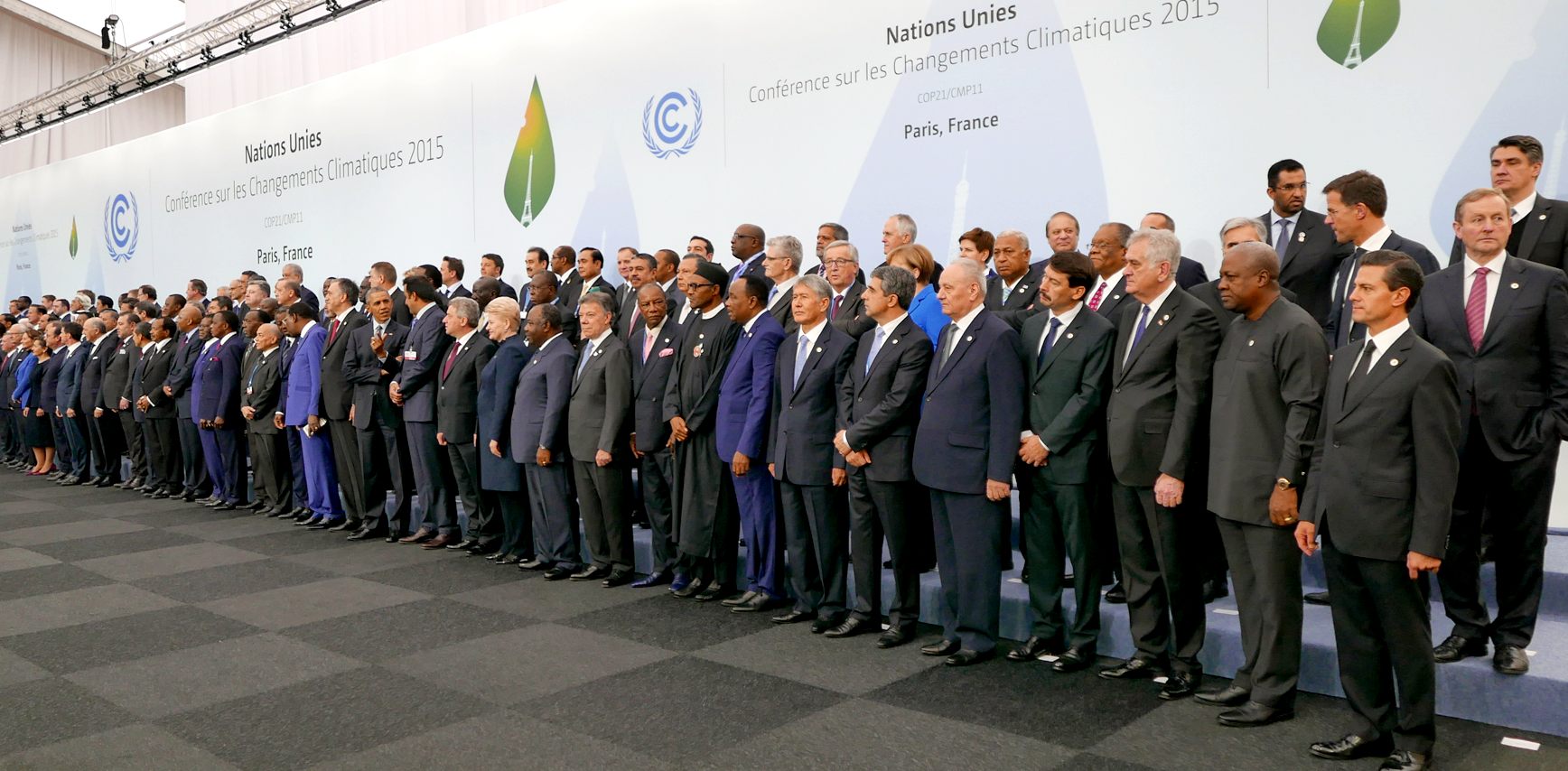
COP
THAT - The United Nations Climate Change Conferences are yearly conferences held in the framework of the United Nations Framework Convention on Climate Change
(UNFCCC). They serve as the formal meeting of the UNFCCC Parties (Conference of the Parties, COP) to assess progress in dealing with climate change, and beginning in the mid-1990s, to negotiate the
Kyoto Protocol to establish legally binding obligations for developed countries to reduce their greenhouse gas emissions. From 2005 the Conferences have also served as the "Conference of the Parties Serving as the Meeting of Parties to the Kyoto Protocol"
(CMP); also parties to the Convention that are not parties to the Protocol can participate in Protocol-related meetings as observers. From 2011 the meetings have also been used to negotiate the Paris Agreement as part of the Durban platform activities until its conclusion in 2015, which created a general path towards climate action. The first UN Climate Change Conference was held in 1995 in Berlin.

WHAT
THE F$*@#! -
Business success does not appear to go hand-in-glove with
conservation needs,
where there is no profit in doing the right thing, other than
saving the planet. But you cannot bank saving the planet. This begs
the question, do we want hard nosed business non-ethics
entering the political arena. Want it or not the USA have got
it, while the entrepreneur is doing his best to develop a conscience.
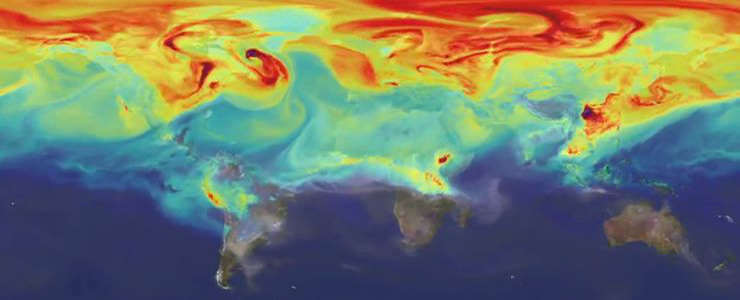

SCIENCE
DAILY JUNE 28 2017 - TURNING THE CLIMATE TIDE BY 2020
The climate math is brutally clear
"The climate math is brutally clear: While the world can't be healed within the next few years, it may be fatally wounded by negligence until 2020," concludes Hans Joachim Schellnhuber from the Potsdam Institute for Climate Impact Research, co-author of both the Nature comment and the Science article. Action by 2020 is necessary, but clearly not sufficient
- it needs to set the course for halving CO2 emissions every other decade. In analogy to the legendary Moore's Law, which states that computer processors double in power about every two years, the 'carbon law' can become a self-fulfilling prophecy mobilizing innovations and market forces, says Schellnhuber. "This will be unstoppable
- yet only if we propel the world into action now."
The opportunity given to us over the next three years is unique in history
"We stand at the doorway of being able to bend the GHG emissions curve downwards by 2020, as science demands, in protection of the UN Sustainable Development Goals, and in particular the eradication of extreme poverty," Christiana Figueres says, lead-author of the Nature comment and former head of the United Nations Framework Convention on Climate Change (UNFCCC). "This monumental challenge coincides with an unprecedented openness to self-challenge on the part of sub-national governments inside the
US, governments at all levels outside the US, and of the private sector in general. The opportunity given to us over the next three years is unique in history." Figueres is the convener of Mission 2020, a broad-based campaign calling for urgent action now to make sure that carbon emissions begin an inexorable fall by 2020.
The authors and co-signatories to the Nature article comprise over 60 scientists, business and policy leaders, economists, analysts and influencers, including Gail Whiteman from Lancaster University; Sharan Burrow, General Secretary of the International Trade Union Confederation; Paul Polman, Chief Executive Officer of Unilever plc; Anthony Hobley, Chief Executive of Carbon Tracker; Christian Rynning-Tønnesen, CEO of Statkraft; and Jonathan Bamber, President of the European Geosciences Union.
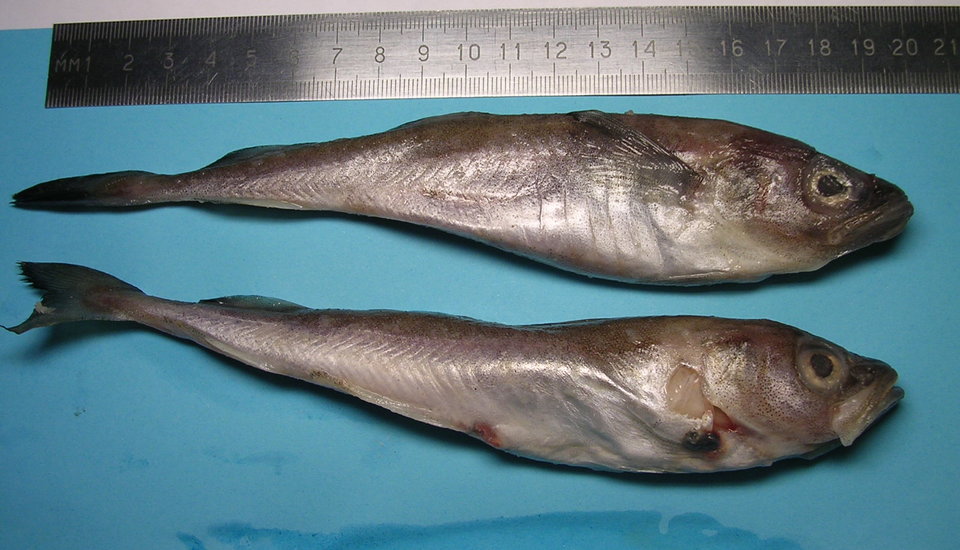
STUNTED
FISH GROWTH - Without the ability to regulate their
metabolism, fish don't grow so large in warmer waters. This
explains why more northern waters produce the biggest and juiciest
prawns.
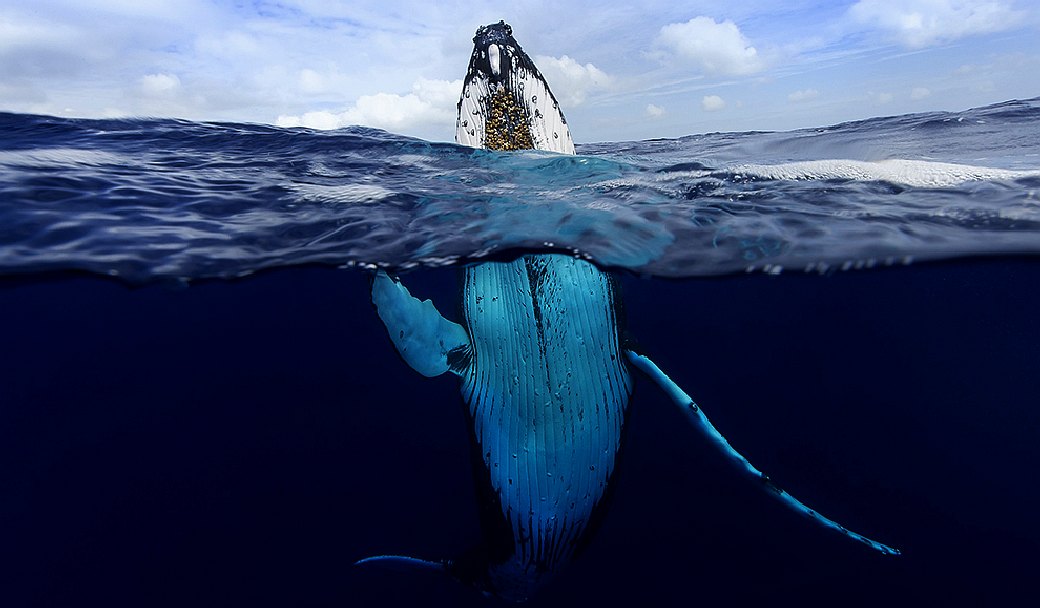
MARINE
LIFE - This humpback whale is one example of a magnificent
animal that is at the mercy of human
activity on planet
earth. Humans are for the most part unaware of the harm their fast-lane
lifestyles are causing. We aim to change that by doing all we
can to promote ocean literacy and climate awareness.

THE
ECONOMIC TIMES 26 JUNE 2017
When people think of climate change, pictures of melting glaciers, sweltering heat in summers and flooding of coastal areas predominate. Often lost in the imagery is the role the world's oceans play in countering the worst effects of global warming.
Although oceans and seas cover more than two-thirds of the earth's surface, they are taken for granted most of the time. People and governments forget that they are rich in resources and provide us with
food, energy and minerals. It is a truism to say that since the high seas belong to no nation, they are the most exploited by everyone.
It is thus important to remember that oceans are crucial for the stability of the planetary climate and local weather. But due to
overfishing, loss of biodiversity and ocean pollution, the future of this unique ecosystem faces a grave threat today.
It is well known that global warming is mainly caused by the carbon dioxide released into the atmosphere by burning fossil fuels like coal and oil. Since
industrialization in the 19th century, the amount of this greenhouse gas in the atmosphere has risen by as much as 40%.
If not for the oceans, temperatures would be even higher than they are now because they absorb a quarter of the carbon dioxide released into the air. When the concentration of carbon dioxide in the atmosphere rises, oceans absorb more to restore the balance. The colder the seawater is, the more effectively the process works.
It is in this context that mapping of the oceans on various parameters that affect human life assumes importance. To illustrate the important role played by the ocean and its ecosystems, Germany's Heinrich Böll Foundation has recently released the latest in a series of global environmental reference works called the Ocean Atlas: Facts and Figures on the Threats to Our Marine Ecosystems 2017.
The atlas aims to give a current insight of the state of the seas and the threats to them. "We hope to stimulate a broader social and political discussion about the meaning of the ocean as an important system and the possibilities for protecting it," the foundation said while launching the atlas.
The atlas clearly explains the role oceans play in battling climate
change. In the Labrador Sea and Greenland Sea as well as in regions near the
Antarctic coast, large quantities of surface water sink into the deep sea where carbon dioxide is stored for a long time. The lion's share of the stored greenhouse gas since the start of the Industrial Revolution will take centuries to return to the surface of the
ocean again. Part of it will remain fixed in the sediment of the sea floor. That is how the ocean significantly slows down climate change.
However, the ability of the oceans to sequester carbon dioxide is not unlimited. For example, while carbon dioxide absorption in the Southern Ocean declined between 1980 and 2000, it has increased in the years since, according to the atlas. The ocean does more than absorb a considerable amount of the greenhouse gas. It also soaks up nearly all the additional warmth resulting from the manmade greenhouse effect.
According to the atlas, oceans have absorbed an astounding 93% of the excess heat over the past 40 years. Increased atmospheric temperatures are attributable to just 3% of this additional thermal energy and would be much greater if not for the oceans. The extra warmth is essentially hidden in the ocean, where it slowly spreads through the depths. Because of this, the surface temperature only increases at a snail's pace.
All of this comes at a price. Absorbing excess carbon dioxide leads to a progressive acidification of the ocean water, while absorbing excess heat contributes to rising sea levels and troubling changes in marine ecosystems. The warming of the oceans also contains dangerous feedback loops. When the rate of evaporation on the ocean surface increases, it produces more water vapor -- a potent greenhouse gas -- which in turn causes temperatures to rise, which causes the rate of evaporation to increase.
These feedback loops can accelerate global warming in ways that are difficult to predict, one more reason not to further burden the ocean system, the atlas warns. For this reason, meeting the goal of limiting global warming to two degrees agreed upon at the
Paris Climate Conference is essential.
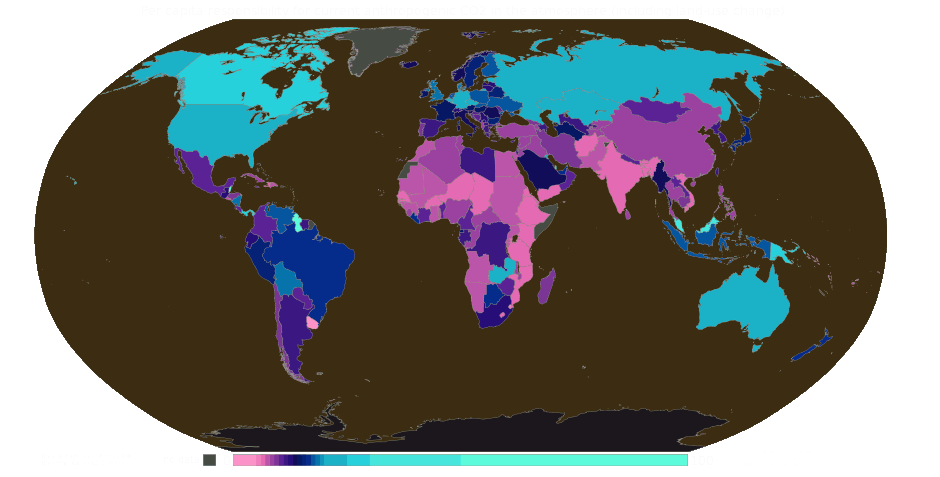
1995 COP
1,
BERLIN, GERMANY
1996 COP
2, GENEVA, SWITZERLAND
1997 COP
3, KYOTO, JAPAN
1998 COP
4, BUENOS AIRES, ARGENTINA
1999 COP
5, BONN, GERMANY
2000:COP
6, THE HAGUE, NETHERLANDS
2001 COP
7, MARRAKECH, MOROCCO
2002 COP
8, NEW DELHI, INDIA
2003 COP
9, MILAN, ITALY
2004 COP
10, BUENOS AIRES, ARGENTINA
2005 COP
11/CMP 1, MONTREAL, CANADA
2006 COP
12/CMP 2, NAIROBI, KENYA
2007 COP
13/CMP 3, BALI, INDONESIA
2008 COP
14/CMP 4, POZNAN, POLAND
2009
COP 15/CMP 5, COPENHAGEN, DENMARK
2010 COP
16/CMP 6, CANCUN, MEXICO
2011 COP
17/CMP 7, DURBAN, SOUTH AFRICA
2012 COP
18/CMP 8, DOHA, QATAR
2013 COP
19/CMP 9, WARSAW, POLAND
2014 COP
20/CMP 10, LIMA, PERU
2015 COP
21/CMP 11, PARIS, FRANCE
2016 COP
22/CMP 12/CMA 1, MARRAKECH, MOROCCO
2017 COP
23/CMP 13/CMA 2, BONN, GERMANY
2018 COP
24/CMP 14/CMA 3, KATOWICE, POLAND
2019 COP
25/CMP 15/CMA 4 TBA
2020 COP
26/CMP 16/CMA 4 TBA Will they have applied the brakes?
2021
COP 26, GLASGOW, SCOTLAND
DESERTIFICATION
COP HISTORY
|
COP
1:
Rome, Italy, 29 Sept to 10 Oct 1997
|
COP
9:
Buenos Aires, Argentina, 21 Sept to 2 Oct 2009
|
|
COP
2:
Dakar, Senegal, 30 Nov to 11 Dec 1998
|
COP
10:
Changwon, South Korea, 10 to 20 Oct 2011
|
|
COP
3:
Recife, Brazil, 15 to 26 Nov 1999
|
COP
11:
Windhoek, Namibia, 16 to 27 Sept 2013
|
|
COP
4:
Bonn, Germany, 11 to 22 Dec 2000
|
COP
12:
Ankara, Turkey, 12 to 23 Oct 2015
|
|
COP
5:
Geneva, Switzerland, 1 to 12 Oct 2001
|
COP
13:
Ordos City, China, 6 to 16 Sept 2017
|
|
COP
6:
Havana, Cuba, 25 August to 5 Sept 2003
|
COP
14:
New Delhi, India, 2 to 13 Sept 2019
|
|
COP
7:
Nairobi, Kenya, 17 to 28 Oct 2005
|
COP
15:
2020
|
|
COP
8:
Madrid, Spain, 3 to 14 Sept 2007
|
COP
16: 2021
|
BIODIVERSITY
COP HISTORY
|
COP
1:
1994 Nassau, Bahamas, Nov & Dec
|
COP
8:
2006 Curitiba, Brazil, 8 Mar
|
|
COP
2:
1995 Jakarta, Indonesia, Nov
|
COP
9:
2008 Bonn, Germany, May
|
|
COP
3:
1996 Buenos Aires, Argentina, Nov
|
COP
10:
2010 Nagoya, Japan, Oct
|
|
COP
4:
1998 Bratislava, Slovakia, May
|
COP
11:
2012 Hyderabad, India
|
|
EXCOP:
1999 Cartagena, Colombia, Feb
|
COP
12:
2014 Pyeongchang, Republic of Korea, Oct
|
|
COP
5:
2000 Nairobi, Kenya, May
|
COP
13:
2016 Cancun, Mexico, 2 to 17 Dec
|
|
COP
6:
2002 The Hague, Netherlands, April
|
COP
14: 2018
Sharm El-Sheikh, Egypt, 17 to 29 Nov
|
|
COP
7:
2004 Kuala Lumpur, Malaysia, Feb
|
COP
15: 2020 Kunming, Yunnan, China
|
LINKS
& REFERENCE
https://www.theguardian.com/environment/damian-carrington-blog/2011/jan/10/gabrielle-giffords-rightwing-rhetoric-climate-change
https://blogs.brighton.ac.uk/aquatic/2019/08/06/climate-oceans-and-coastal-communities-conference-free-event/
https://shop.brighton.ac.uk/conferences-and-events/life-health-physical-sciences/events/climate-oceans-and-coastal-communities-conference-free-event
https://www.coventrytelegraph.net/news/coventry-news/went-strike-school-protest-climate-15992288
http://www.bbc.co.uk/news/world-us-canada-42297370
https://www.usatoday.com/pages/interactives/trump-lawsuits/
https://longtailpipe.com/2017/08/28/trump-administration-fiddles-in-washington-while-houston-drowns-under-extreme-weather-hurricane/
https://www.nytimes.com/interactive/2017/climate/what-is-climate-change.html
https://www.sciencedaily.com/releases/2017/06/170628144848.htm
http://www.dailymail.co.uk/sciencetech/article-4819542/Climate-change-make-fish-SHRINK-30.html
https://www.seeker.com/earth/animals/climate-change-is-causing-fish-to-shrink
http://economictimes.indiatimes.com/news/politics-and-nation/climate-change-neglecting-oceans-no-longer-an-option/articleshow/59319549.cms

RECYCLING
OLD BUILDINGS - Solar House is an old generating building
dating from C.1900 that formerly burned a form of town gas made on site
from coal to produce
electricity for a country manor house and
a local Sussex village up until 1936. The village of
Herstmonceux boasted street lighting and electric ovens by
1913 because of this enterprise. Today this monument to
innovation in the blossoming age of electricity is being equipped with
photovoltaic panels, a wind turbine and
solar water heaters -
to become all but self sufficient in energy terms. With local
authorities struggling to meet targets set by the Climate
Change Act 2008, this building may be the only one in
Sussex to reduce its carbon footprint to below 1990 levels as
per the 2050 target set by the UK Government. In 2006
the UK encouraged microgeneration and harvesting heat from the
sun for hot water, etc., with the Sustainable Energy Act.
Strangely,
the local authority (Wealden)
objected to such eco-upgrading in 2017, apparently
not realizing that the fight against climate change begins at
home. They have since declared a climate
emergency. The negative attitude of any council that should be urging
property developers to go green is disturbing to say the
least, and may be more widespread in the UK rather than an
isolated case. It seems that most UK councils are living in
the dark ages in terms of planning policy that is not being
implemented as it was intended by the British Government. All
the more reason for an awareness campaign, to shake the
cobwebs from the corridors of power - which members appear to
be pursuing alternative agendas - or they simply don't care.
It may be that planning staff are ignorant of ways to capture energy
from nature. If that is the case they could be trained or
council's might employ energy conservation specialists in
place of dyed in the wool RTPI members who are out of touch
with a fast changing world - that needs to change even faster
to avoid more lost crops and wild-fires.
CLIMATE
CHANGE LINKS
ACIDIFICATION
- OCEANS
AGRICULTURE
- FARMING FOR OUR FUTURE
ANTHROPOCENE
- GEOLOGICAL EPOCH
BERLIN,
6TH CLIMATE CHANGE CONFERENCE
BIO
FUELS - FROM CROPS & OCEAN FLORA
CALIFORNIA
AIR RESOURCES BOARD - CARB
CARBON
DIOXIDE -
CHANGE
- THE HARDEST THING OF ALL
CIRCULAR
ECONOMY - RESTRAINT
CLIMATE
CHANGE - ACT
2006 CLIMATE CHANGE & SUSTAINABLE ENERGY
- ACTS
2008, TARGET AMENDMENTS 2050 ORDER
- EMERGENCY
ACTION PLANS
- THE FACTS
- CHILE,
SANTIAGO 2019
COAL
- FOSSIL FUEL
CONFERENCES
OF THE PARTIES - UNITED NATIONS COP
CONSULTANCY
- LOW
COST EV INFRASTRUCTURE ACCELERATION
- SUSTAINABLE
HOUSING
DESERTIFICATION
- SOIL DEGRADATION TURNING AGRICULTURAL LAND TO DESERTS
- COP
1, COP
2, COP
3, COP
4, COP
5, COP
6,
COP 7, COP
8
- COP
9, COP
10, COP
11, COP
12, COP
13, COP
14
DIESEL
- FOSSIL FUEL FOR TRUCKS, TRACTORS AND FISHING BOATS
ECONOMICS
- CIRCULAR
ELECTIONS
- LOCAL
UK 2019
ELECTRIC
VEHICLES - ECONOMICS
- CIRCULAR
ECONOMY
- RANGE
ANXIETY
ELIZABETH
SWANN - CHALLENGER WORLD RECORD CIRCUMNAVIGATION - SPECIFICATIONS
- SUNSHINE
ROUTE
ENERGY
SECURITY - EUROPEAN
THREATS - SHORT
TERM - LONG
TERM - FUTURE
WORLD ENERGY, ABU DHABI 2020
EVENTS
-
EXTINCTION
REBELLION - ROGER
HALLUM NOT GUILTY MAY 2019
FOOD
SECURITY -
FOSSIL
FUELS - COAL, NATURAL GAS & OIL
FUSION
- HYDROGEN
ATOMIC ENERGY
G20
- GROUP
OF TWENTY MOST POLLUTING COUNTRIES
GEOTHERMAL
- HEAT
ENERGY
GLOBAL
WARMING -
GREENHOUSE
GASES -
GRETA
THUNBERG - SWEDISH ACTIVIST
HORIZON
2020 - DECARBONISING
LONG DISTANCE SHIPPING, (CALL OPENS) SEPTEMBER 2019
- MANUAL
FOR PARTICIPANTS, MANAGEMENT GUIDANCE
- SMART
GREEN TRANSPORT BRIEFING BROKERAGE EVENT, 7 OCTOBER 2019
(CARS)
- UK
H2020 NATIONAL POINTS OF CONTACT
HOUSING
- SUSTAINABLE BUILDINGS
HUMANITARIAN
AID - MOBILE POWER FOR REFUGEE RELIEF
HYDRO
ELECTRICITY -
IMO
- INTERNATIONAL
MARITIME ORGANIZATION
IPCC
- INTERGOVERNMENTAL
PANEL ON CLIMATE CHANGE (UNITED NATIONS)
KEROSENE
- AVIATION FUEL
KLEPTOCRATS
-
METHANE
-
MOBILE
RENEWABLE ENERGY - FOR
THIRD WORLD COUNTRIES AND EMERGENCIES
NITROUS
OXIDE -
OIL
- HEAVY
BUNKER
OZONE
-
PETROLEUM
-
PLANET
A, PLANET
B
PLANETSOLAR
- IMMO
STROEHER, RAPHAEL DOMJAN
PLUTOCRATS
-
POLICIES
- THAT PROMOTE GLOBAL WARMING
- THAT REDUCE GLOBAL WARMING
POLITICS
- LOCAL
POLITICS & POWER CORRUPTION
POPULATION
- WORLD
GROWTH
PROTESTS
-
RANGE
ANXIETY - FEAR OF EV'S WHERE NO SERVICE INFRASTRUCTURE
EXISTS
RENEWABLE
ENERGY - 100+
COMPANIES A - Z INDEX
RENEWABLES
-
ROGER
HALLAM -
EXTINCTION REBELLION
SECURITY
- ENERGY
- SHORT
TERM - LONG
TERM
SLAVERY
- FINANCIAL & GLOBAL WARMING
SOLAR
POWER - PHOTOVOLTAIC AND HEAT CONCENTRATORS
TRANSPORT
- FROM COAL TO PETROL TO EV'S
TRUST
- CLIMATE CHANGE
TU
DELFT - SOLAR
BOAT OFFSHORE RACE @ MONACO JULY 2019
UNITED
NATIONS - CONVENTION
TO COMBAT DESERTIFICATION
- CONFERENCES OF THE PARTIES COPS
- GENERAL
ASSEMBLY SEPTEMBER 2019
- ACTION
PORTFOLIOS TO REDUCE GREENHOUSE GASES - FINANCE,
ENERGY,
INDUSTRY,
NATURE, CITIES
- ADAPTATION
, MITIGATION,
YOUTH,
POLITICS
WARMING
OCEANS -
WAVE
& TIDAL - POWER GENERATION
WEALDEN
DISTRICT COUNCIL
WIND
POWER - TURBINES & WINDMILLS
This
website is provided on a free basis as a public information
service. Copyright © Cleaner
Oceans Foundation Ltd (COFL) (Company No: 4674774)
2022. Solar
Studios, BN271RF, United Kingdom.
COFL
is a charity without share capital.
|




















